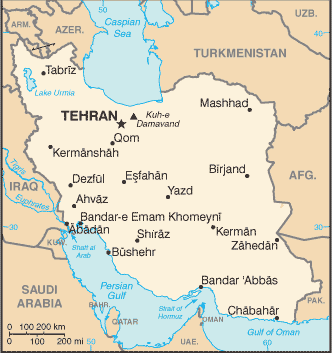The U.S. Senate will soon consider yet another package of harsh economic sanctions on Iran as punishment for a nuclear weapons program they don’t have, Democratic Majority Leader Harry Reid said on Tuesday.
 Iran is already facing an unprecedented set of U.S.-led economic sanctions, focused on but not exclusive to its oil and banking sectors. After repeated updating of the sanctions by Washington in recent months (the latest was in December), unemployment has risen considerably, inflation is rampant, and ordinary Iranians are suffering.
Iran is already facing an unprecedented set of U.S.-led economic sanctions, focused on but not exclusive to its oil and banking sectors. After repeated updating of the sanctions by Washington in recent months (the latest was in December), unemployment has risen considerably, inflation is rampant, and ordinary Iranians are suffering.
Incidentally, the sanctions have not resulted in a change in policy by Tehran, which the Obama administration and Congress say is the aim. Part of the reason is because sanctions don’t work, but another part is because Iran already conforms to Washington’s demands regarding its nuclear program.
There is a consensus in the U.S. military and intelligence community that Iran is not developing nuclear weapons and has demonstrated no intention of doing so. Still, aggressive foreign policy postures and harsh economic sanctions which severely harm the Iranian people continue, primarily for domestic political reasons and to pacify Israel.
The current legislation, on which Democratic Majority Leader Harry Reid said he would “soon ask consent” for an expedited vote, would focus on foreign banks transactions with Iran’s oil and tanker companies. It also includes measures aimed at closing loopholes in existing sanctions.
Sen. Rand Paul (R-KY) attempted to block the new sanctions legislation, demanding Senate Democrats to allow a vote on his amendment that says that nothing in the bill “shall be construed as a declaration of war or an authorization of use of force against Iran or Syria.” This will delay Reid’s plans to pass the bill, but Paul has failed in such congressional stand-offs in the past.
Columbia University Professor Gary Sick has called the sanctions effort “the equivalent of a blockade. It’s an act of war.” Trita Parsi, of the National Iranian American Council, wrote last week that “the sanctions strategy on Iran will very soon reach [the] point” of escalating the situation with Iran to one of “two policies: Regime change or war. Or Both.”
Indeed, with no actual pretext (Iran doesn’t have a nuclear weapons program) and perfectly available peaceful alternatives to war, that seems to be Washington’s end game.


